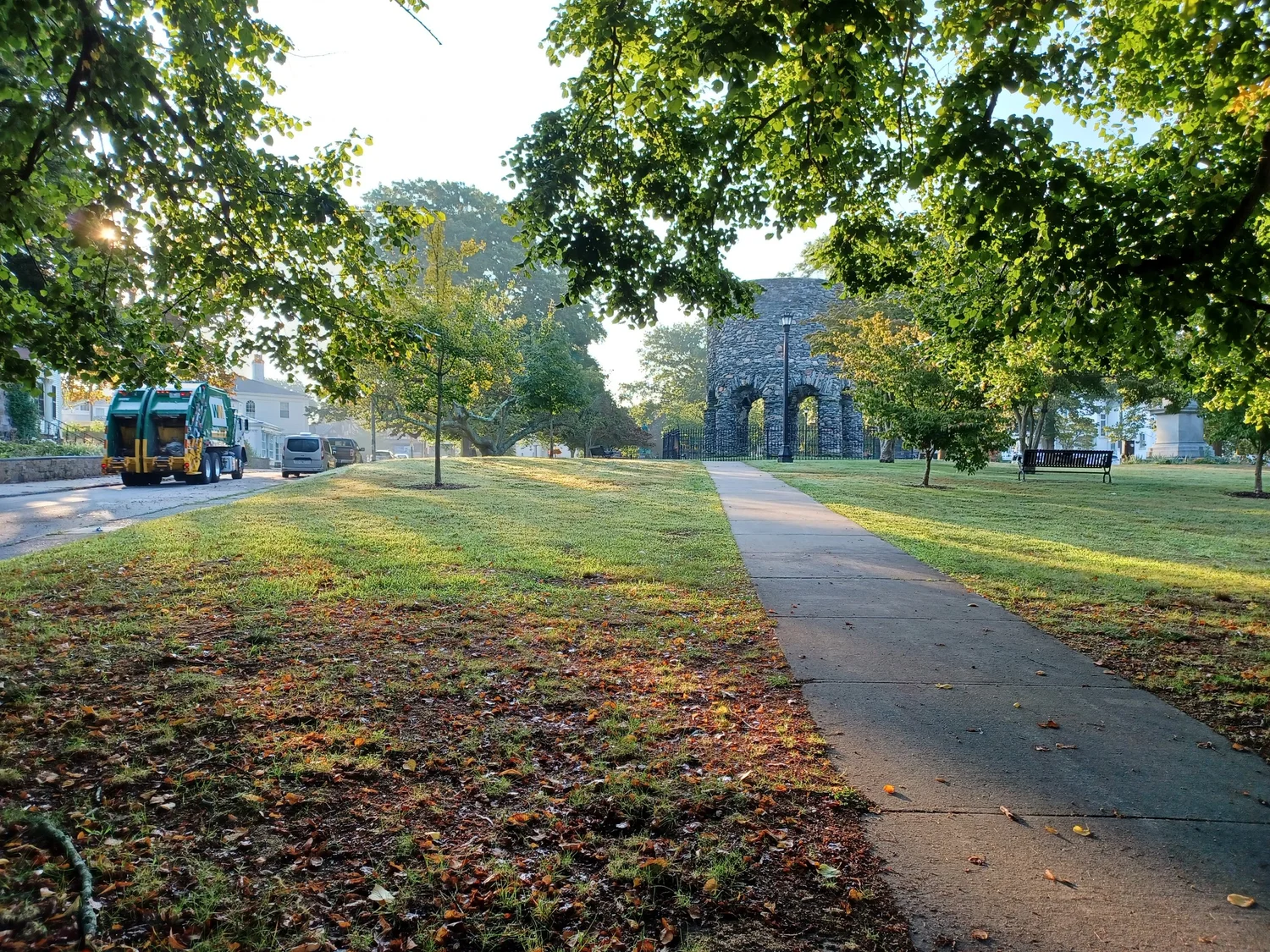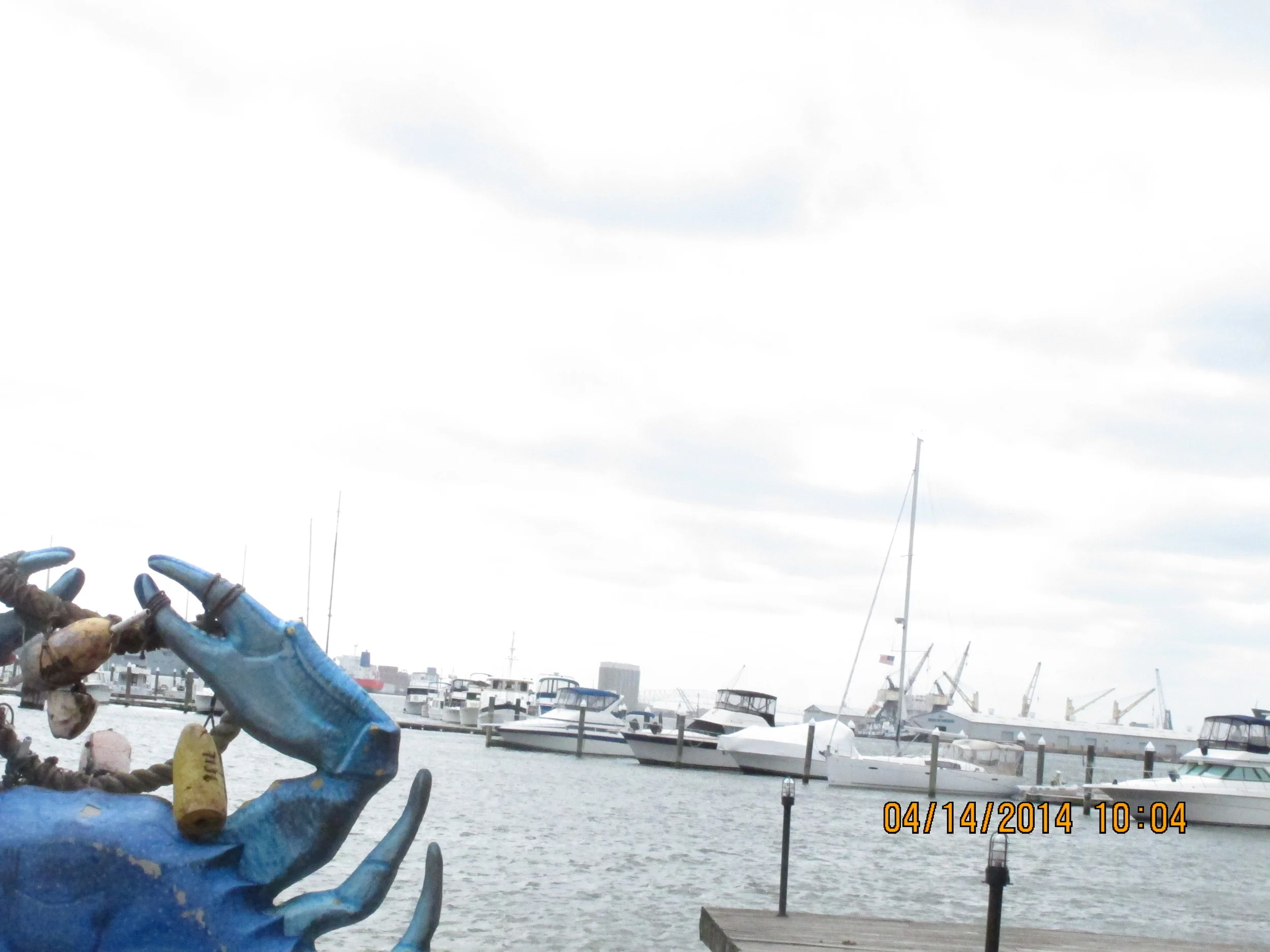Crunch and Crunch, and Then Start Crunching
/Two things sting in my head as I face a future where megastorms are everyday things and where spontaneous conversations are rare. I have tried since 2001 to whip myself, alone, into stronger physical condition. And I have tried since 2001 to write about how collaboration across banking, engineering, and politics could physically prepare the world for lockdown.
Both endeavors came up short in 2020. That was when I learned that to confront the swirl you can’t fathom and to connect with folks you don’t know, you can do worse than to learn to do a few things over and over and over again, in a circle, in public.
You see, Covid found me having spent many years thinking about climate change, and always looking for the gleaming portal away from landslides and heat strokes and war. I used to write magazine profiles about architects who sketched silent cities where everyone glided around on hovercraft.
Now I want to help you vote, and know where to find a higher-quality stove, and knock on your neighbor’s door when the power fails. Again and again and again.
Thank the change in my exercise routine that fall 2020 impelled. I had been working out, alone at 5 am for decades, counting on these morning runs to nourish the illusion that I was helping the city wake up. By September 2020 the city was thrashing through a nightmare. I was watching empty elevated trains rumble past, making Pavlovian grabs at my neoprene mask when a runner passed in the other direction.
Around that time, I spoke with a neighbor who I had seen around in the gym before lockdown. He has little kids and I have big ones, and he told me that another neighbor named Minh Duong would teach a kids’ workout class once a week after “school.”
The class got our kids outside, and got them pulling tires down the street, and got them repeating knee-tucks. At a November kids’ showcase with kids swinging kettlebells and dancing with styrofoam noodles, buzz began among parents. And one adult at a time, we started taking his class in the very early morning.
Photo courtesy of minh duong
Nearly five years on, a group of six remains in Minh’s class, building our leg strength on Wednesday evenings and our backs and midsections on Saturday mornings. What we’ve learned is that reality never runs out of capacity for chaos. When we do the same task again, even when it’s the jumping-jack-pushup blast known as a Burpee, we’re setting our composure and our command against whatever new fractal form the world has presented for itself. Habits habituate you to love a world where danger and silence seep everywhere.
This love of habit, regardless of medal or posted time or trophy, shadows a smarter way to think about the climate crisis. We got into climate chaos by repeatedly pouring extra carbon to hang heavily in the air while repeatedly hoping that someone - a physicist! A celebrity! Al Gore!- would unroll a ladder to lift us above our habits. And we will get out of it by repeatedly leaving things on the supermarket shelf, repeatedly leaving the car at home (maybe to charge), repeatedly reading the electric bill to see where using power from the sun would pay off at once, repeatedly asking our insurance agents and our town councilmember what’s going on with the floodline. Too much carbon has built in the atmosphere for anyone to erase it. We can instead hold it in place and shrink its effect, day after day after day after day, sometimes clumsily but always again.
One thing you learn from repetition is attention. Minh’s instructions speak to a specific, rather than issuing a catchall “you can do it.” Sit down a lot more…elbows behind your ears…both feet at the same time. The balm of repeating things involves the specificity that becomes clear when you’ve reached your nth act. When you become more aware of where you’ve placed your elbow - or how you’ve sprinkled your salt or trimmed your cactus’ spores or purled your stitch, or whatever - then you become more aware of how your decisions play out in the material world. You also see where listening to others leads you.
Changes in who’s in power come from repeated phonebanks, walks around neighborhoods, votes. And changes in how we vote comes in repeated changes to how we define success. The future depends on how routinely and correctly the vast majority of us do many things differently - again and again and again.
The rest of the Group is off-camera as I (again) try to flex my calves correctly.



